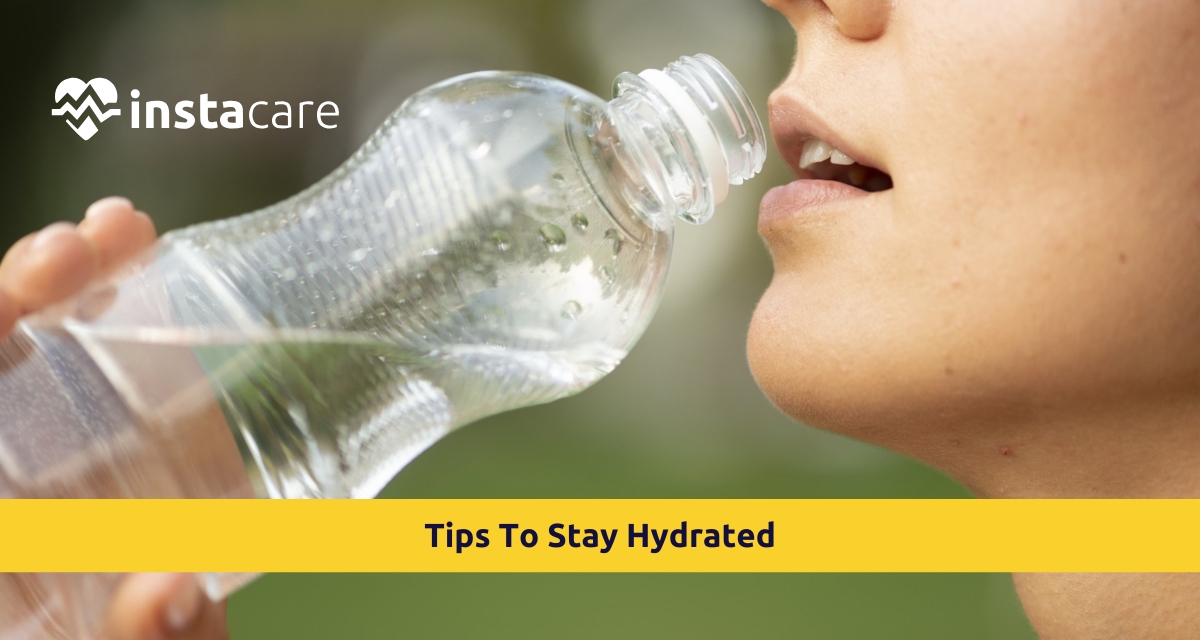The Importance of Staying Hydrated
- Supports bodily functions: Digestion, circulation, and regulating body temperature depend on water.
- Improves mental clarity: Hydration will improve focus and efficiency in cognitive ability.
- Poor hydration: When people do not stay sufficiently hydrated, the human body suffers numerous adverse consequences. Proper hydration prevents negative factors that affect health and helps people maintain well-being. A hydrated body distributes heat and absorbs nutrients while removing waste products, which are indicators of its healthy functioning.
Role of Water to Your Body
- Temperature regulation: Sweating cools the body, especially when it is hot or exercising. More water is needed to replace lost fluids.
- Lubrication of joints: Water helps keep the joints well-lubricated, reducing friction and pain while moving.
- These functions prove that water is a beverage and an element of your hydration for health.
How to Stay Hydrated?
1. Drink Water Often
- Carry a water bottle: Carry a refillable water bottle you can use occasionally. Such a small activity can increase your intake all day long.
- Set reminders: You can set reminders using your phone or any hydration app to drink more. This is excellent if you often forget.
2. Eat Hydrating Foods
- Fruits: Watermelon, oranges, and cucumbers will do. They hydrate your body while giving needed vitamins and minerals.
- Vegetables: Since leafy greens and bell peppers contain loads of water, add them to salads and smoothies.
3. Keep Track of What You Have Consumed
- 8 x 8 Rule: Drink at least eight ounces of water daily, or approximately two litres. Now, if memorising something is difficult for you, just do it.
- Personal needs: You must drink according to your activities and the weather. For example, if it is hot or you indulge in any form of physical activity, drink more water.
- Liquid tracking application: This feature tracks the number of liquids taken in, enabling you to track your daily intake.
View More: 6 Unusual Signs of Dehydration You Should Know About
4. Hot Weathers Hydration
- Fluid intake: Drink more water before, during, and after outdoor activities. This is particularly true if you think you are sweating beyond the norm.
- Wear the right clothes: They may keep you cool, make you sweat less, and help you monitor your hydration level.
5. Dehydration Signs Awareness
- Thirst: Slightly dehydrated because you feel thirsty from your body, and it needs you to drink once it warns you.
- Coloured, darker urine: Light yellow urine can warn you of more hydration. Otherwise, it should be lightly yellow or sometimes even pale.
Benefits of Rehydration
- It gives you more energy. Hydration increases your body's capability to do things right. You can go to the gym and walk around, not because you think you are cool, but because your body's doing what it has to, and you can, physiologically.
- Healthier-looking skin: Hydration gives supple skin and a glow. Hydrated skin will look fuller and fit even with fine lines that are nearly unnoticeable.
Long-term Health Benefit
- Kidney function: The kidneys can filter the blood through waste and urinate with proper fluid in your body.
- Healthy heart: Hydration is essential to maintaining blood volume at its best and keeping the heart pumping correctly.
Healthy Hydration Habits
- Flavour it: For those who might get bored with plain water, the taste of the fruit or herbs adds to the juice. It might make the consciousness of drinking enjoyable and boost your urge to drink.
- Tracking: Record every drop in the journal or using an application. This will keep you informed and in tune with your habits.
Hydration and Energy
- Boosted physical performance: For athletes, enhanced endurance and strength are general characteristics of well-hydrated people. This is usually a massive difference in workouts or competitive sports.
- Increased mental sharpness: Drinking water keeps your mind sharp, allowing you to stay alert throughout the day. Your body grows tired when it lacks the needed water because it affects brain function, resulting in diminished focus abilities.
Conclusion

